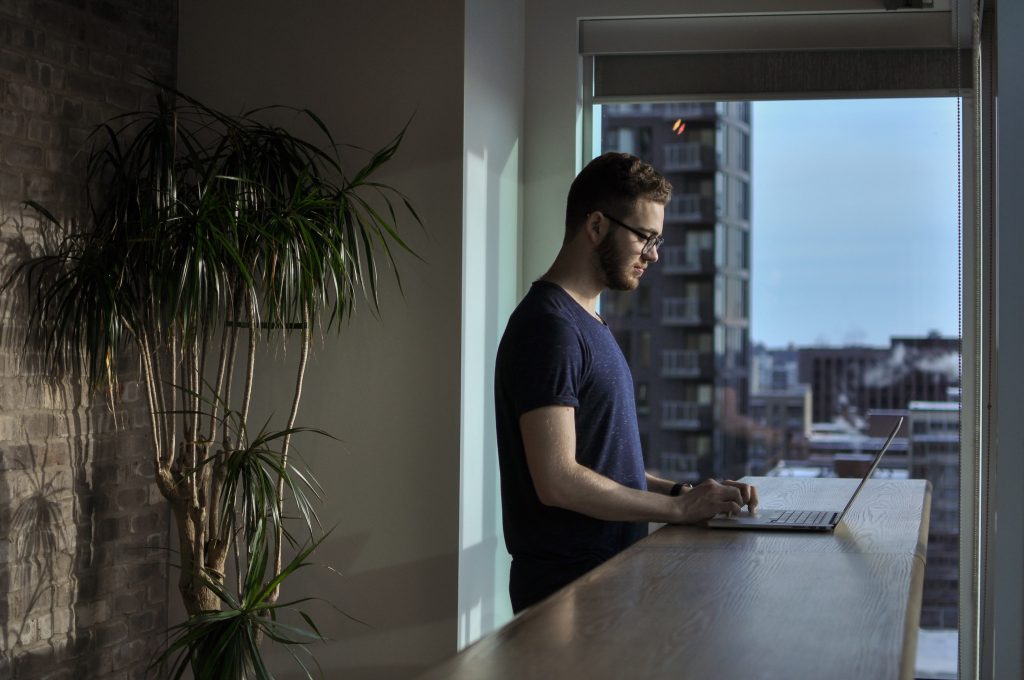
More than two billion people worldwide are now under full or partial lockdown as governments and healthcare providers try to limit the damage caused by the COVID-19 pandemic. Many of those are working from home, using technology for remote communication and collaboration. Even so, the economy is being hit, with GDP forecast to shrink in most parts of the world and fears growing that lockdowns >might continue for up to 18 months.
For some, however, work has to continue because they provide essential services. Those in the emergency services, healthcare or even in supermarkets, still have to go out to do their jobs. That has led to a hiring increase in some sectors, just as others, such as hotels, restaurants, and pubs, are >laying-off staff as the pandemic forces them to close.
History shows that social changes made during a time of crisis often become permanent. In a similar fashion and with already having had a grave impact on our societies and economies, the coronavirus pandemic is likely to bring permanent upgrades to how we work. Here’s how that might play out.
Putting people first
#1. Being part of the solution: Many businesses are having to change their roles as the pandemic unfolds, >for example by shifting production. Cosmetics firms such as Christian Dior and Givenchy are producing hand sanitizer, while Ford, Airbus, and others are using factory space to build essential equipment, such as ventilators. In the education sector, many businesses are making their resources accessible to support schools and universities that have been forced to close.

#2. Taking corporate responsibility seriously: Meanwhile, companies that are viewed as not putting people first during the crisis, find themselves in a difficult position and under public pressure. We might be entering a new era in terms of public expectations for corporate social responsibility. Companies will have to consider their mission and values by answering three fundamental questions: Why do you exist?; How does the world look differently because you exist?; And what will and won’t you do to achieve your mission and fulfill your vision?
#3. Becoming more inclusive: Companies are also likely to have to change their relationship to their employees after the pandemic. Businesses must become more inclusive of those who can’t work in traditional ways and will have gained greater experience in supporting the mental health of employees. For those who can’t work remotely there could be demands for a new social contract that better protects them in times of crisis. Likewise, growing numbers of gig economy workers might expect an improved safety net, such as sick pay and redundancy payouts.
Culture and leadership
#4. Remote work is here to stay: There will certainly be greater demands for more remote working. Many workers who had previously been told they could not work from home now have proof that they can, and might demand greater flexibility rather than return to a life of crowded commutes. Climate goals necessitate reduced travel, in any case, and companies now know that daily commutes and long-distance business trips can be replaced with technology.
#5. New leadership: These changes will create a need for a new kind of leadership. A recent Financial Times article noted that many managers don’t know how to judge good work and instead resort to “presenteeism and visibility as a proxy”. Leading a remote team requires different skills, which companies will need to identify and nurture. That can mean determining the best collaboration tools but it can just as easily mean specifying downtime, for example by banning calls in the evening to help maintain work-life balance.

Automation
#6. Acceleration of work automation: But other than impacting the business culture and leadership styles, COVID-19 is also expected to have a profound change in the deployment of machines and AI in workplaces. According to a global survey carried out by EY, businesses are planning to ramp up investments in the automation once the coronavirus crisis passes. Out of the 2,900 executives surveyed, 41% indicated that they will increase spending on automation in the post-pandemic economy.
And these profound changes will not be limited to supermarkets and restaurants only but will include industries such as logistics, warehousing and delivery. The market of automated vehicles, goods-to-person automated carts and autonomous mobile robots is expected to more than triple between 2030 and 2040 – from $81 to $290 billion.
Once the COVID-19 lockdown is over, whether that’s in three, six or eighteen months, many companies will need to be rebuilt. Those that can operate at something close to normal during the crisis have learned to work in new ways. In both cases, there is an opportunity to accelerate the changes to the world of work. After the pandemic, we can expect to see a world where workers are more remote, company cultures are more flexible, businesses as a whole are more resilient and many will resort to automation as a result.



